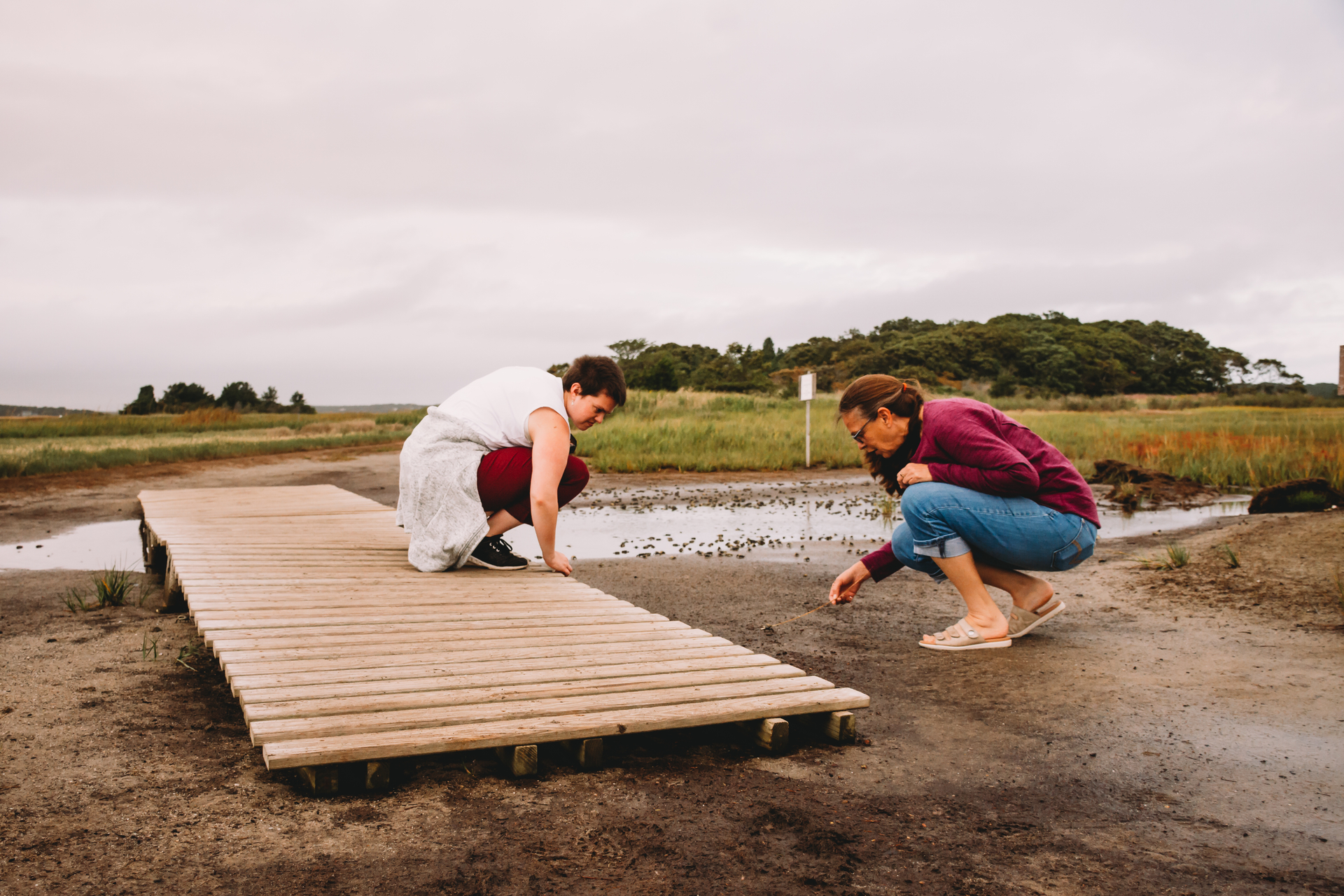Resources and Professional Development
Our Coast, Our Future Curriculum
Our Coast, Our Future is a middle school curriculum that presents a snapshot of Massachusetts coastal communities in the face of climate change, then uses a challenge-based structure to provide students an opportunity to dig into locally relevant issues.
Students practice skills in defining problems and making decisions while conducting research and constructing explanations.
Curriculum Overview
This coastal climate resilience-centered curriculum focuses on four principles:
- The intersection of climate impacts and justice is critical in understanding challenges and exploring solutions.
- Youth can become changemakers by learning the process of decision making, emphasizing community level solutions, and understanding the differences between policy and practice.
- Multiple perspectives and experiences need to be considered and valued in decision making. Those most in harm's way should be prioritized.
- Youth should use their voice. What is the story to tell about what they’ve learned, who can they reach, and how?
Why This Course of Study Matters
Climate change affects all communities in Massachusetts but has particular impacts along our coast. As global temperatures increase, a common set of factors drive the effects on all coastal cities and towns.
Like all communities, coastal communities have existing structures, policies, and practices which affect residents in ways that are not always equitable. Responses to climate change can make existing inequities worse or better depending on how they are addressed, and whether a full range of community voices are included in the discussion.
Using a hypothetical and locally relevant community-level challenge, students work together to weigh the pros and cons of solutions across various social, economic, and environmental impacts.
The culminating project is a communication piece that is student-driven to reach the broader community, such as a blog post, video project, art installation, or news story. The product will feature a presentation of their challenge and recommendations as a mock case study, with the option to make a direct connection to a local real-world scenario that could be addressed with similar considerations and solutions.
Standards Alignment
While the unit is developed for all middle grade students, the strongest alignment according to Mass Curriculum Frameworks is with Grade 6 and Grade 8. However, individual school districts may adjust their scope and sequence, so this is presented as a guideline.
Additionally, the Grade 8 unit supports the Massachusetts Civic Education requirements, which align well with the product in the final lesson. This unit also provides opportunities to engage in standards-based science practices, including particularly:
- Asking questions
- Developing and using models
- Analyzing and interpreting data
- Engaging in argument from evidence
- Obtaining, evaluating, and communicating information
A background in these practices will enhance student experiences in this unit but is not a prerequisite. Students can develop new skills in these areas as they complete the unit.
Developed by Mass Audubon educators, supported by a grant from the Massachusetts Office of Coastal Zone Management.
Stay Connected with Education
Sign up to hear about opportunities to help your students connect with nature and environmental science.



